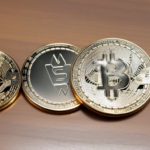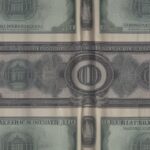This article was first published on Deythere.
With renewed optimism over a US-China trade deal, economist and gold advocate Peter Schiff has sounded a warning that the headline deal could calm markets for a moment, but the deeper structural issues, like soaring budget deficits, persistent inflation, and accelerating de-dollarization, will continue to weigh on the dollar.
As he said in a recent post: “But the deal will do nothing about soaring budget deficits, rate cuts, inflation, or de-dollarization.”
In his view, the trade deal euphoria masks a weakening foundation of US financial credibility.
What Schiff Means by “Dollar Crisis Warning”
When Peter Schiff issues a “dollar crisis warning” he means the US dollar’s status as a global reserve currency is under threat. He links this to unchecked fiscal deficits and inflationary pressures. In a recent post on X he wrote: “Gold will keep rising.”
For Schiff, the dollar crisis is real and measurable. Reports claim global central banks are steadily reducing US dollar denominated assets. Data shows China alone dumped around $23 billion of US dollars and Treasuries in early 2025.
In essence, Peter Schiff dollar crisis warning frames the trade deal euphoria as cosmetic. It doesn’t address what he sees as the root causes of a weakening dollar.
How the US-China Trade Deal Fits In
Markets responded positively to news that the US and China were close to a trade deal. According to Schiff, this is misplaced. He said investors were cheering news of a deal even though the fundamentals remained unchanged:
“Stock futures & Bitcoin are up and gold is down on news that the extra 100% tariffs on Americans buying Chinese goods, which were set to go into effect on Nov. 1st, will be delayed as the U.S. & China are close to another meaningless trade deal that Trump can tout as another win.”
In other words; the trade deal may relieve geopolitical tension but in Schiff’s estimation; it does nothing to curb the structural forces behind the dollar’s weakness.
To him, the deal may temporarily boost the dollar but that doesn’t erase the trajectory of de-dollarization or deficit expansion.
Why Markets Can’t Afford to Ignore the Warning
Although Peter Schiff is known for railing against fiat currencies and pushing the benefits of gold, his warning deserves a serious look because it hits on some important issues.
To start with; the interplay of budget deficits, inflation and de-dollarization can wreak havoc on everything from exchange rates to global finance.
The fact that markets are so focused on the trade deal might just be a sign of complacency. Schiff reckons the real risk lies in the “behind the scenes”, not the flashy headlines.
Now, if the dollar’s status as the reserve currency starts to slip, it could get more expensive for the US to borrow money and at the same time, make it harder for citizens to get credit.
Additionally, any assets that have been invested in US dollars could start to lose value.
Conclusion
The trade deal might give a temporary reprieve, but the picture Schiff paints of what could happen to the US dollar dawning.
If the US keeps on churning out more US Treasury debt to fund its budget deficits, it could put a damper on investors’ willingness to hang onto dollar-denominated investments.
Inflation could start to creep in, which would do a number on the value of the dollar.
Countries could start to shift away from the dollar and into other currencies, or even gold.
Each of these problem areas points to the same fundamental theme; that notable attention should be given to what’s going on under the surface, not just the surface noise.
Frequently Asked Questions About Peter Schiff Dollar Crisis Warning
What does Peter Schiff mean by a “dollar crisis”?
He means a scenario where the US dollar loses its global dominance due to deficits, inflation and loss of reserve status and therefore loses confidence.
Why is the US-China trade deal not enough according to Schiff?
Although it may ease trade tensions; Schiff says it does nothing to curb deficits, inflation or de-dollarization.
What evidence is there for global de-dollarization?
China selling US Treasuries and buying gold and other currencies; is an example of central banks diversifying away from the dollar.
Is Schiff’s view universally accepted?
Some critics say his love of gold and hatred of fiat currencies makes him too alarmist. But his framework makes one think about the bigger picture of dollar risks.














